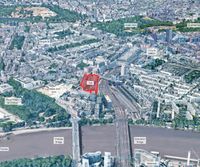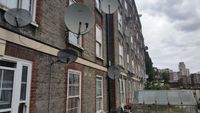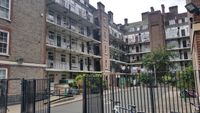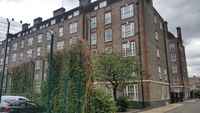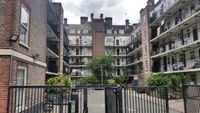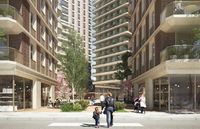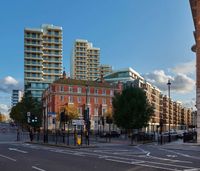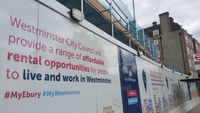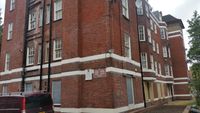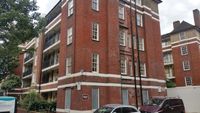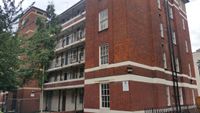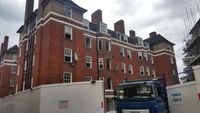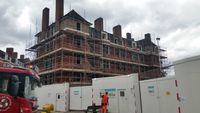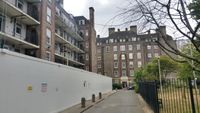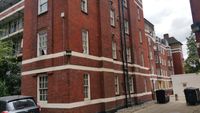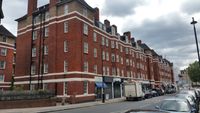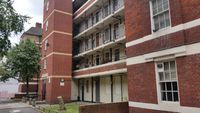Ebury Bridge estate, Westminster
Demolition is well underway of the 336 homes earmarked for demolition on Westminster's Ebury Bridge estate in Pimlico. Westminster has taken the controversial decision of decanting and demolishing the estate without first seeking planning permission or balloting residents.
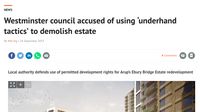
Westminster Council's intention to regenerate the estate started in 2010, when the estate was first identified in the Council's Housing Renewal Strategy as one of five key estates within the borough in need of significant investment.
Plans were submitted in 2014 (ref:14/01295/COFUL) which were subsequently approved in 2016. These proposals were found to be unviable and remained unimplemented until they subsequently expired in 2019.
The 2014 plans envisaged the retention of four of the estates grey brick blocks.A fresh planning application was submitted in July 2020 which now includes the retention of just one of these blocks.
In May 2021, Westminster Council approved its own planning application for the redevelopment of the estate. This was signed off by the Mayor in August 2021. The Mayor's report is silent on Westminster's failure to apply for grant funding, which would have triggered a ballot and says nothing about the failure to explore alternatvies to demolition.
The estate comprising 336 homes (198 social rent/138 leasehold) will now be replaced by 781 homes of which 239 social rent - an uplift of just 41 social rented units despite more than doubling the density.
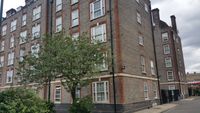
The estate is being redeveloped by the Council itself. Figures in the planning application supporting documents show that Westminster Council is spending a staggering £108m on decanting and demolishing the estate and that despite the replacement social housing being partly cross-subsidised by the new private homes, it is estimated that Westminster will have to fork out a further £90m during the course of the estate's redevelopment.
Given the significant public subsidy involved, the housing crisis and the Mayor's recent declaration of a "‘retrofit revolution’ to tackle the climate emergency" one might expect the Mayor to exercise his call-in powers to explore whether £198m of public money might be better spent on the environmental, economic and social benefits of refurbishment.
In January 2022, Westminster Council issued a compulsory purchase order to enable it to remove the last remaining residents on the estate.
The Council's Statement of Reasons supporting the order, claims that there is no alternative to demolition despite it not having assessed whether the circa £200m it is spending on demolition could better be spent on refurbishment and infill.
It also acknowledges that residents haven't been balloted on the demolition of their homes, claiming that a ballot is not required because Mayoral funding is not being sought.
This ignores the Mayor's policy requirement to seek funding in order to maximise affordable housing and his requirement to explore alternatives to demolition.
Unfortunately the Mayor signed off his approval for the scheme in August last year, without raising any of these issues.
The CPO applies to the 30 remaining leaseholders and handful of commercial leaseholders incuding a cafe, hairdressers and pharmacy.
Links: Westminster Council's planning application documents: https://idoxpa.westminster.gov.uk/online-applications/applicationDetails.do?activeTab=documents&keyVal=QDECO3RP2RE00
Mayor's planning reports: https://gla.force.com/pr/s/planning-application/a0i4J000002RmHdQAK/20206100
